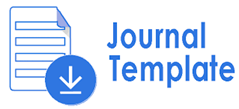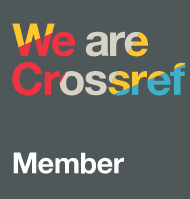Practicality and effectiveness of live worksheets-based math e-modules to improve student numeracy
Abstract
Keywords
Full Text:
PDFReferences
Amalia, D., Buchori, A., & Astuti, D. (2023). Penerapan problem based learning berbantuan liveworksheet untuk meningkatkan motivasi dan hasil belajar peserta didik. Prosiding Seminar Nasional Ppg Upgris 202, 2440–2450.
Andriyani, N., Yahya, H., Irma, Y. B. S., & Sri, H. (2020). Penerapan model problem based learning berbantuan LKPD live worksheet untuk meningkatkan keaktifan mental siswa pada pembelajaran tematik kelas Va SD Negeri Nogopuro. Prosiding Pendidikan Profesi Guru Fakultas Keguruan Dan Ilmu Pendidikan, Universitas, 122–130.
Arikunto, S. (2010). Prosedur Penelitian Suatu Pendekatan Praktek. Jakarta: Rineka Cipta.
Farman, H. F. , & R. M. (2021). Development Of E-LKPD using live worksheets for online mathematics learning during covid-19. Jme (Journal of Mathematics Education), 6(1), 36–42. Https://Doi.Org/10.31327/Jme.V6i1.1626
Fransisca, M. (2017). Pengujian validitas, praktikalitas, dan efektivitas media e-learning di Sekolah Menengah Kejuruan. Jurnal Ilmiah Pendidikan Teknik Elektro, 2(1), 17–22.
Gusmania, Y., & Wulandari, T. (2018). Efektivitas penggunaan media pembelajaran berbasis video terhadap pemahaman konsep matematis siswa. Pythagoras: Jurnal Program Studi Pendidikan Matematik, 7(1), 61–67.
Hartanto, S. (2020). Mobalean maning (model pembelajaran berbasis lean manufacturing). Yogyakarta: Deepublish.
Kemendikbud. (2017). Materi pendukung literasi numerasi. Jakarta: Kementerian Pendidikan Dan Kebudayaan.
Khikmiyah, F. (2021). Implementasi web live worksheet berbasis problem based learning dalam pembelajaran matematika. Pedagogy: Jurnal Pendidikan Matematika, 6(1), 1–12. Https://Doi.Org/10.30605/Pedagogy.V6i1.1193
Lestari, E., Luqman, N., & Dwi, I. S. (2022). Pengembangan E-modul berbasis flip pdf professional tema global warming sebagai sumber belajar mandiri siswa kelas VII. PENDIPA Journal of Science Education, 6(2), 338-345. https://doi.org/10.33369/pendipa.6.2.338-345
Mulyani, F. Haliza, N. 2021. Analisis perkembangan ilmu pengetahuan dan teknologi (IPTEK) dalam pendidikan. Jurnal Pendidikan dan Konseling. Vol. 3(1), 101-109.
Nugraha, T. S. (2022). Kurikulum merdeka untuk pemulihan krisis pembelajaran. Inovasi Kurikulum, 19(2), 251–262. Https://Doi.Org/10.17509/Jik.V19i2.45301
OECD. (2023). Pisa Assessment framework key competencies in reading, mathematics and science. Paris: Oecd Publishing.
Prastowo, A. (2014). Panduan kreatif membuat bahan ajar inovatif. Yogyakarta: Diva Press.
Retno, P. D., Fita, M., Untari, A., & Nafiah, U. (2021). Peningkatan hasil belajar peserta didik kelas V SD N 6 Getas menggunakan LKPD online dengan aplikasi liveworksheet.com mata pelajaran matematika materi bangun ruang. Jurnal Malih Peddas (Majalah Ilmiah Pendidikan Dasar), 11(1), 45–55. Https://Doi.Org/10.26877/Malihpeddas.V11i1.8865
Riduwan, S. (2017). Pengantar statistika. Bandung: Alfabeta.
Rohim, D. C. (2021). Konsep asesmen kompetensi minimum untuk meningkatkan kemampuan literasi numerasi siswa sekolah dasar. Jurnal Varidika, 33(1), 54–62. Https://Doi.Org/10.23917/Varidika.V33i1.14993
Satrianawati. (2018). Media dan sumber belajar. Yogyakarta: CV. Budi Utama.
Septonanto, D. J., Farida, N., Mukti, W. (2024). Pengembangan media E-LKPD live worksheets soal HOTS untuk menguatkan hasil belajar siswa sekolah dasar. Jurnal Ilmiah Pendidikan Citra Bakti. 11(1), 124-138. https://doi.org/10.38048/jipcb.v11i1.2315
Suryapuspitarini, B. K., Wardono, & Kartono. (2018). Analisis soal-soal matematika tipe higher order thinkingskill (HOTS) pada Kurikulum 2013 untuk mendukung kemampuan literasi siswa. Prisma, Prosiding Seminar Nasional Matematika, 1, 876–884. https://journal.unnes.ac.id/sju/index.php/prisma/article/view/20393
Tasyanti Tri. Wardono. Rochmad. (2018). Analisis kemampuan literasi matematika berdasarkan kecerdasan emosional siswa melalui model pembelajaran kooperatif tipe group investigation. PRISMA, Prosiding Seminar Nasional Matematika, 1, 334–346. https://journal.unnes.ac.id/sju/index.php/prisma/article/view/19611
Widiantari, N, K, K., I Nengah Suparta & Sariyasa. (2022). Meningkatkan literasi numerasi dan pendidikan karakter dengan e-modul bermuatan etnomatematika. Jurnal: JIPM (Jurnal Ilmiah Pendidikan Matematika). 10(2), 331-343. 10.25273/jipm.v10i2.10218
Widyoko, E. P. (2017). Evaluasi program pembelajaran. Yogyakarta: Pustaka Belajar.
Yustinaningrum, B. (2023). Deskripsi kemampuan literasi numerasi siswa menggunakan Polya ditinjau dari gender. Jurnal Sinektik, 4(2), 129–141. Https://Doi.Org/10.33061/Js.V4i2.6174
DOI: https://doi.org/10.33373/chypend.v10i1.6345
Refbacks
- There are currently no refbacks.

This work is licensed under a Creative Commons Attribution-NonCommercial-ShareAlike 4.0 International License.
Copyright (c) 2018 Universitas Riau Kepulauan

Ciptaan disebarluaskan di bawah Lisensi Creative Commons Atribusi 4.0 Internasional.















